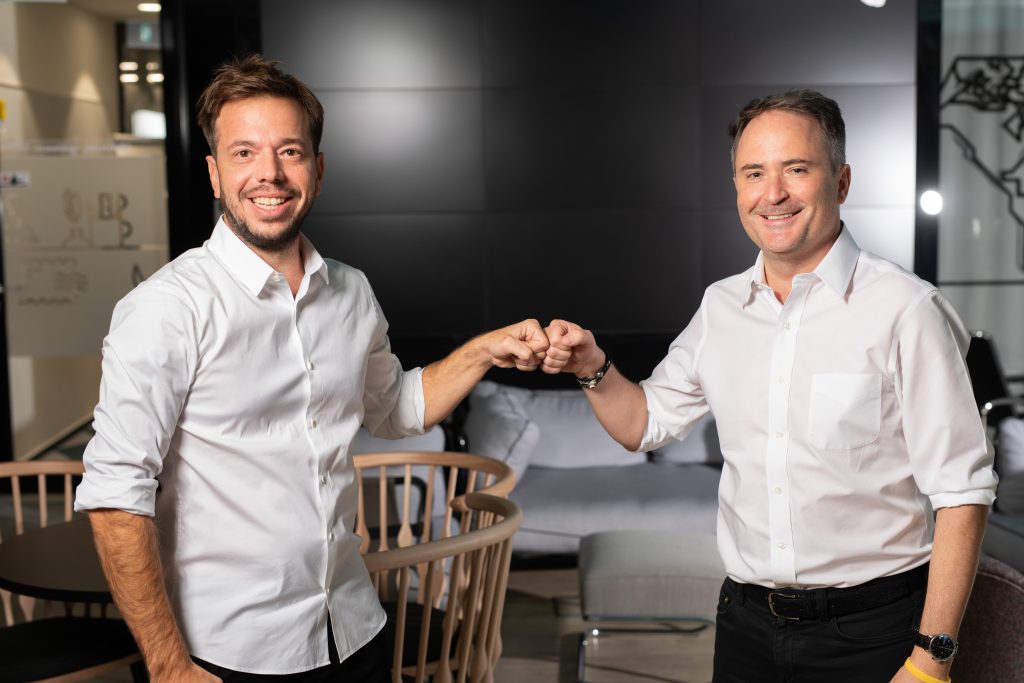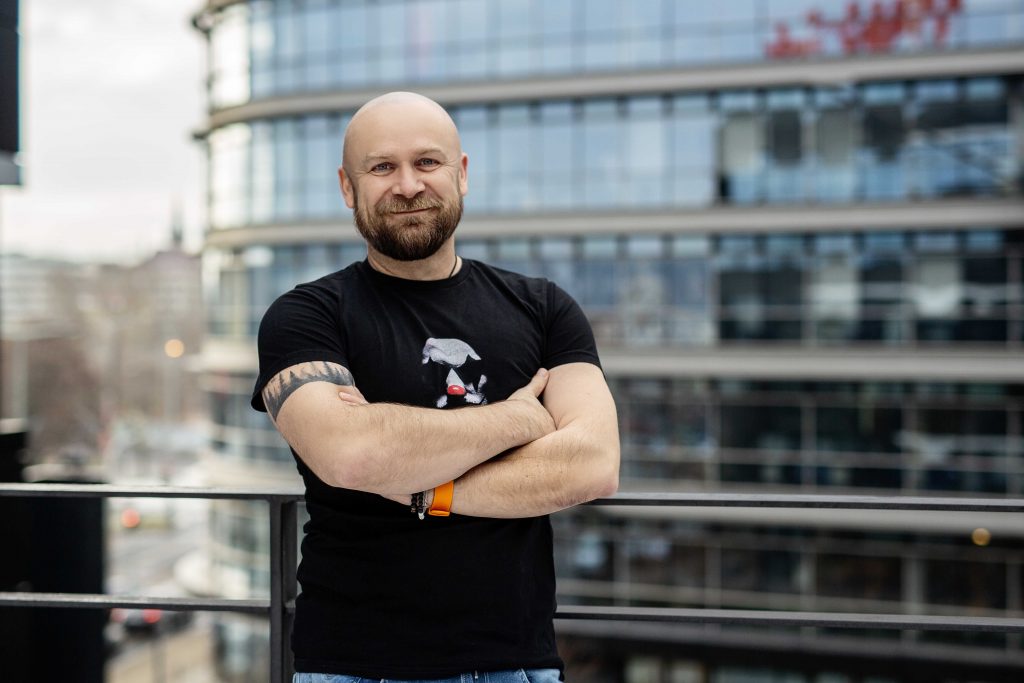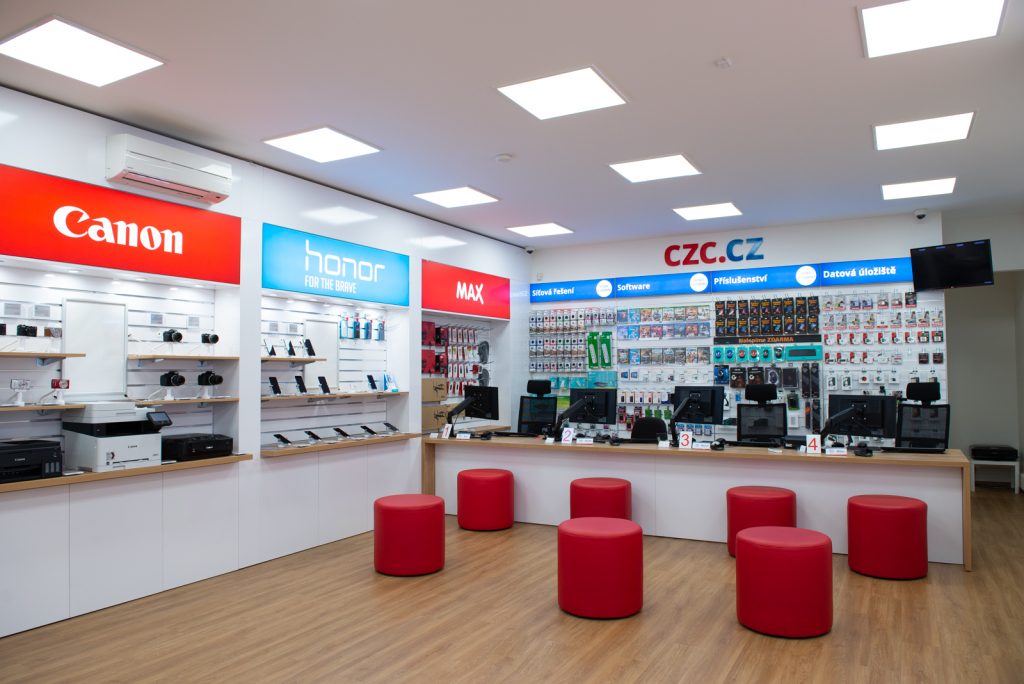All newsInterview with Jan Hanuš, CEO of MALL Group: A smooth sea never made a skilled sailor
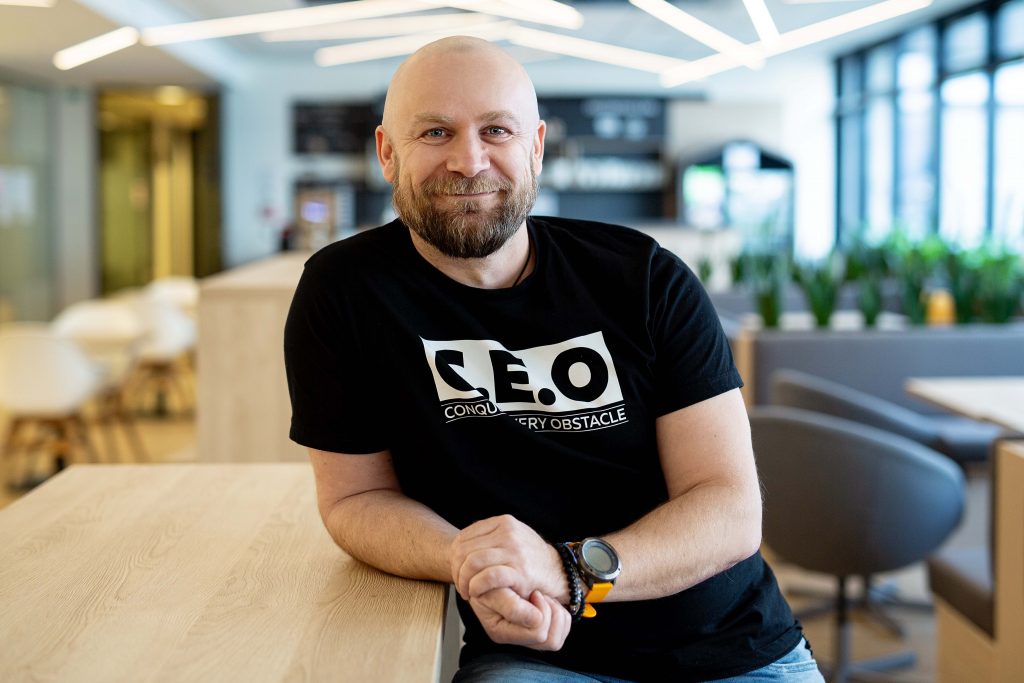
His task is to put the MALL Group into the black, but the new head of the e-commerce group, Jan Hanuš, is already more concerned with what will come next. “It’s important for the sake of motivating people at MALL, who are waiting for it to happen so they’ll be able to take flight again,” says Hanuš.
In mid-January, when he first introduced himself to his new employees on his very first day in his new role, he said that one of his principles that he requires those around him to have is courage – he hates when problems aren’t tackled head-on, as they are, immediately and without beating around the bush.
“I see lies as running away when one lacks courage. And I have to say that this isn’t always the case in large companies. But for me, courage is important, because it shows how you think and that you’re not afraid to embark on new adventures,” says new Mall Group CEO Jan Hanuš.
For this forty-six-year-old manager, courage and adventure are symbolic. During the course of his career he willingly accepted demanding challenges at the head of companies that needed to make some changes; for example, as head of Kostelecké uzeniny he helped take it from loss to profit, and during the past two and a half years he managed the successful restructuring of Hungarian mobile operator Telenor Hungary.
While there may not be any revolution waiting for him at the MALL Group, his task will be to continue to develop the well-positioned marketplace product, make the entire group profitable, and put it on the path to further growth, and jumping from the telecom sector to the largest Central European e-commerce group required some courage too.
“It’s good when you see that you’ve left some change behind, but in a good sense, that you built something. It’s not that I need to be constantly surrounded by stress, but it’s true that when the waters are too calm, I need to find some additional fun,” he says with a smile.
In the case of someone who looks like an adventurer, it’s really not that surprising that he looks for challenges and adrenaline not only in his professional life, but in his private life as well. “It’s always got to do with some sort of jumping. I jump whenever and wherever possible, and really enjoy it,” admits Jan Hanuš.
Where do you jump and on what?
On my bike. Last year I started doing downhill, but it’s not just riding downhill, it’s more like jumping. Starting at my age isn’t exactly easy, one has cultivated a certain degree of carefulness by then, but that makes it all the more interesting. Twelve-year-old kids are flying past you like crazy, and you look at them, astonished. “Come on, dude!” they yell at you, and you take off. You wipe out a few times, but then you manage somehow.
What do you like about it so much?
It’s refreshing. It’s truly the best sport I’ve ever done, and I’ve tried a lot of them. This one is interesting in that when you approach a jump you can’t see past it, but you still have to build up enough speed, because if you don’t it’s bad and you’ll fall. It’s perfect for clearing your head.
How did you end up doing it at the age of forty-five?
I’ve been rock climbing my whole life, and doing all sorts of fast sports. I’ve been snowboarding for 32 years, once upon a time I even raced in the Czech Cup and did half-pipe jumping. But I discovered downhill purely by chance. Some kids built a few jumps near where I live, and I was always going there to have a look and say to myself: What’s this? And then I started doing it. It’s a rough sport, quite painful, and even when you say that it won’t hurt, that you’ll be careful, it doesn’t work, pain is simply part of it.
Do you need adrenalin in your life?
I need that endorphin rush after something happens. I don’t know if that’s exactly adrenalin, but I guess so. I tried running, but don’t like it. Maybe it’s about the adrenalin. In general, I’d say I like speed, regardless of type.
Is that why you pick tougher tasks in your professional life too?
I don’t want people to get the impression that I’m someone who a priori needs to change things and turn everything upside down, because, for example, my mission at MALL isn’t about that. This company is off to a great start, and so I see lots of opportunities that can be developed further. It’s not that I need to be surrounded by stress and panic at all costs to be in my element, but rather I’d say that I like it when I have a lot of work ahead of me and things to build. A lot has been done at MALL, but there’s still a lot of work ahead of us.
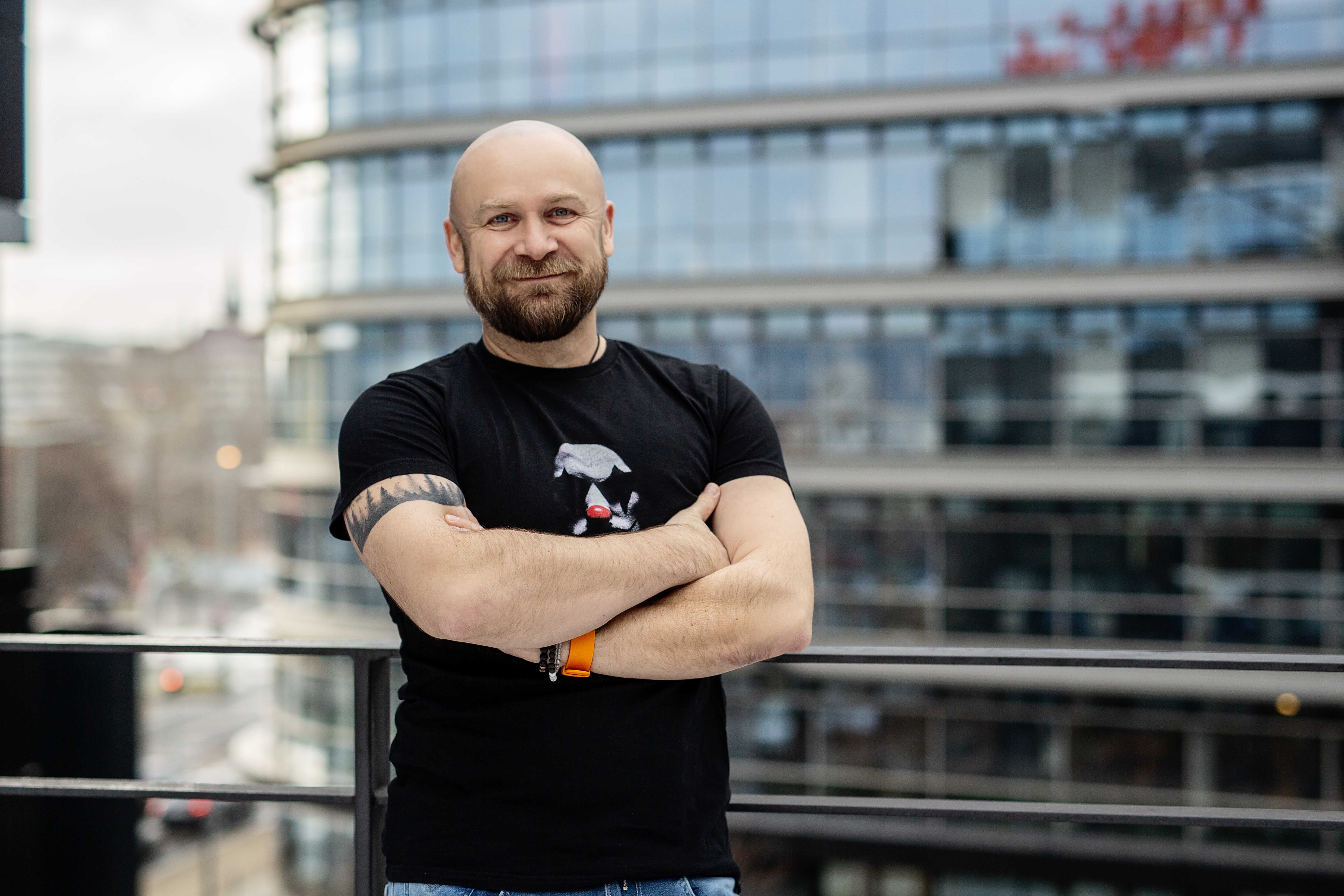
You’ve jumped feet-first into the world of e-commerce. Is it a lot different from telecommunications?
A telco is like a tanker that turns slowly. Everything is based on long-term contracts, so if you sow some thing now you’ll be harvesting it in a year or two, but you won’t change much in the next month. E-commerce is much more flexible. And more comprehensive. Telecom isn’t simple from a technological perspective, but the complexity, scope, and layering of e-commerce are far greater.
What is your biggest experience from Telenor that is also applicable to MALL?
That everything in a company is about people, and people have to come first. I’ve always felt this to be true and acted accordingly, but at Telenor I became convinced of this to the degree that I’ve got it carved in stone for the ages. I had to transform a lot of things at Telenor, and take unpopular measures, but from the beginning we said that we take care of our people and that for us they’re in first place. Despite unpopular measures, it could still be seen that we respected people to an extreme degree. And that’s what I’ve taken with me to MALL.
You also talked about it in the very first all-hands meeting with employees, where you said that the team is more important to you than individualism. What does that mean in practise?
When someone’s a permanent pain in the ass, they’re gone. For me, it’s that simple.
No matter how well they perform?
No matter how good they are, I’m not going to allow my team to be shattered by one individualist who thinks that the world around them doesn’t exist. I don’t fire people because of mistakes, but because of values. Those are the values that the company respects and everyone in it respects, and if someone doesn’t want to or is unable to respect them, then we’ll part ways on good terms, with all due respect and without any ill will, because there are certainly also other companies where this value will find a match and where this can be mutually beneficial. You can’t say you believe in some values and then tolerate someone who sees things differently, so occasionally you simply have to say goodbye to someone.
How much was this care for people disrupted by Covid, which caused part of the team to be at home?
It wasn’t easy, but it was an excellent experience. At Telenor we found it helped a lot to say right at the beginning that none of us may know how long it will take and how big of a problem it will be, but that even so, we won’t let anyone go. People knew that even if they worked from home, they wouldn’t miss out on anything and wouldn’t lose their jobs. That helped both them and us. My take-away from that was that when I have to decide between people and money, whether I’ll take care of them and hold on to them, or lay them off and save some money, I’ll always choose the former, even though Covid of course had a big impact on the telecom business.
For MALL and the entire e-commerce sector, Covid was, on the contrary, an impulse that jump-started the entire market. On the other hand, it’s tricky, because no one will consider pre-Covid numbers sufficient now.
That’s true. To me, Covid means uncertainty because we’re already well aware of what Covid does, but still don’t know what will happen “after Covid”. The problem is that when you ask ten experts, you get eleven answers. At any rate, we’re trying to make sure that MALL’s business doesn’t lean on a crutch named Covid. Regardless of what happens, our basics have to work well. And whether we have the Covid wind at our backs for another x months or two years shouldn’t play such a major role. That’s the business viewpoint, but then there’s also the human aspect to this question.
That we’re all sick and tired of the pandemic.
Yes. I’d be happy for it all to be in the past, so we can concentrate on normal things. Half of our agenda is still being pulled along by Covid, Covid measures, and Covid considerations. And yet there’s a ton of work ahead of us, a ton of good work. We have lots of opportunities even without Covid.
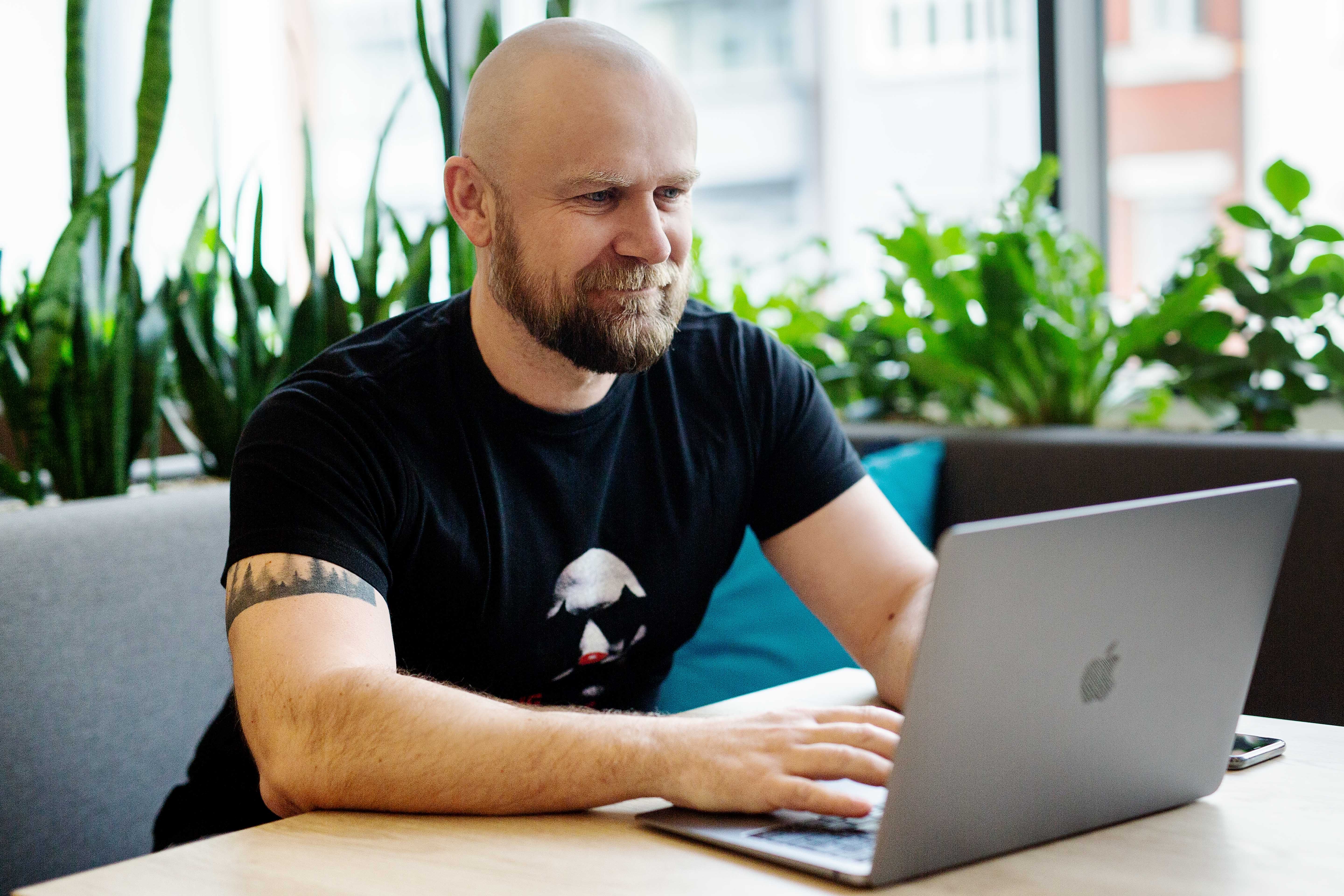
What aspects of MALL surprised you pleasantly?
Right now, as we speak, I’ve only had a few dozen interactions with people in middle and higher management, so it’s probably a little early to judge, but I’d like to mention two things. The first is that the people I’ve met here have a real desire to work. They take an interest and are open to change. And that makes me happy, because I need to have people around me who are aware of what drives them, are motivated internally and don’t need any external motivation. I need people who don’t wait for someone to tell them something, but take an active interest, move things along, improve themselves, and are constantly thinking.
And the second thing?
I found that from a technical perspective MALL really has a very strong foundation. And when we complete all the important transformations, it could take off unbelievably in our region. I’m utterly convinced of that. The company is truly ready for expansion.
Today, the MALL Group is in nine countries in Central and Eastern Europe. Where do you see the greatest potential?
I haven’t found a magic button and for the time being don’t even have any idea which way I should go to find it. But I definitely see the greatest challenge being in the Czech Republic. If only because our country is an example that the company then applies to other markets. The Czech Republic will logically have greater priority. But what I find enticing about expansion abroad is that there are already countries where we’re capable of being number on the market, which is something we want to leverage and use as a springboard in countries where we’re a smaller player, like Poland or Hungary.
Plus you know Hungary thanks to your most recent role at Telenor.
Yes. I lived there for almost three years now, so I have to see if I can’t use my knowledge and experience from that market to take some sort of next step. But the cards we’ve been dealt are clear – at home it’s an obligation, here we’ve got to succeed in great style, and then figure out the common denominator for success in all countries, and start building on that.
You’ve been helping companies make changes throughout your entire career. In general, what’s the toughest thing about change?
To make sure people around you don’t panic. You’re bringing uncertainty to something they were used to, they knew what the next day would bring, and suddenly you come along and wreck it for them. And it’s good to observe their reactions. Some start to panic and have the feeling that everything’s wrong, while another group of people tend to look on from the sidelines to see if it’ll pass. And then there are people who say: “Hey, white water, that’s fun, let’s go.” And those are precisely the people you’re looking for. Thanks to uncertainty they make an impression on you much more quickly that they would in a normal, comfortable situation in which it’s hard to recognize heroes. A smooth sea never made a skilled sailor.
What’s the first thing you want to change at MALL?
I want good projects to get sufficient opportunity. A lot is being said about the “EBITDA 0” project, which is my mission. We’ve got to pull it off and put MALL into the black. The company is already on the right trajectory, so now I’m mostly dealing with how to start up more new growth projects, like for example taking the MALL Partner programme to the next level. These projects are important not only from a business perspective, but also because of people in the company who are waiting to be able to spread their wings and take MALL up another notch. This motivation is extremely important. Even over the few days I’ve been here, I’ve met dozens of people who gave me the feeling that they’re just waiting for the moment it happens and we take flight again. I’m utterly convinced of that.



